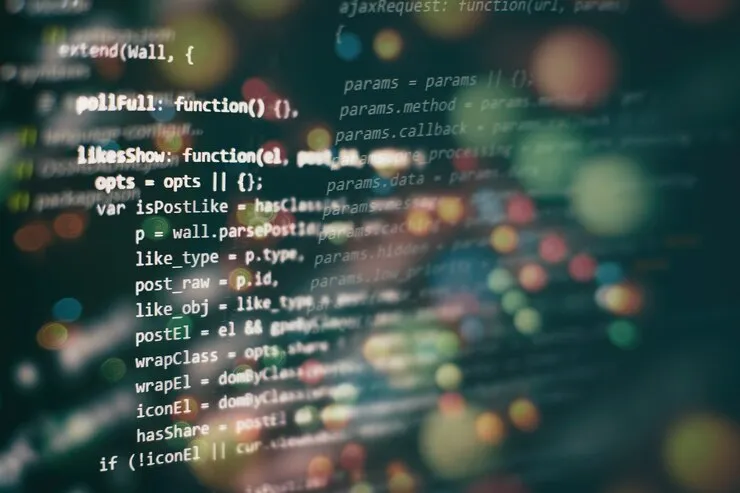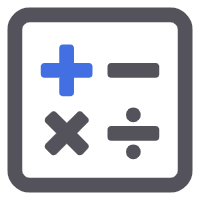在现代软件开发中,数据安全是一个至关重要的议题。MD5(Message-Digest Algorithm 5)是一种广泛使用的哈希算法,常用于数据校验和密码存储等场景。尽管MD5在安全性方面存在一些局限性,但在某些特定的应用场景中,它仍然是一个简单且有效的选择。本文将通过实例代码,详细介绍如何在C语言中实现MD5加密,帮助开发者理解和应用这一算法。无论您是C语言初学者还是有经验的开发者,本文都将为您提供有价值的知识和实用的示例。

md5c.h:
/* POINTER defines a generic pointer type */
typedef unsigned char * POINTER;
/* UINT2 defines a two byte word */
//typedef unsigned short int UINT2;
/* UINT4 defines a four byte word */
typedef unsigned long int UINT4;
/* MD5 context. */
typedef struct {
UINT4 state[4]; /* state (ABCD) */
UINT4 count[2]; /* number of bits, modulo 2^64 (lsb first) */
unsigned char buffer[64]; /* input buffer */
} MD5_CTX;
void MD5Init (MD5_CTX *context);
void MD5Update (MD5_CTX *context, unsigned char *input, unsigned int inputLen);
void MD5UpdaterString(MD5_CTX *context,const char *string);
int MD5FileUpdateFile (MD5_CTX *context,char *filename);
void MD5Final (unsigned char digest[16], MD5_CTX *context);
void MDString (char *string,unsigned char digest[16]);
int MD5File (char *filename,unsigned char digest[16]);md5c.c:
/* MD5C.C - RSA Data Security, Inc., MD5 message-digest algorithm
*/
/* Copyright (C) 1991-2, RSA Data Security, Inc. Created 1991. All
rights reserved.
License to copy and use this software is granted provided that it
is identified as the "RSA Data Security, Inc. MD5 Message-Digest
Algorithm" in all material mentioning or referencing this software
or this function.
License is also granted to make and use derivative works provided
that such works are identified as "derived from the RSA Data
Security, Inc. MD5 Message-Digest Algorithm" in all material
mentioning or referencing the derived work.
RSA Data Security, Inc. makes no representations concerning either
the merchantability of this software or the suitability of this
software for any particular purpose. It is provided "as is"
without express or implied warranty of any kind.
These notices must be retained in any copies of any part of this
documentation and/or software.
*/
#include "md5c.h"
#include <string.h>
#include <stdio.h>
/* Constants for MD5Transform routine.
*/
#define S11 7
#define S12 12
#define S13 17
#define S14 22
#define S21 5
#define S22 9
#define S23 14
#define S24 20
#define S31 4
#define S32 11
#define S33 16
#define S34 23
#define S41 6
#define S42 10
#define S43 15
#define S44 21
static void MD5_memcpy (POINTER output, POINTER input, unsigned int len);
static void MD5Transform (UINT4 state[4], unsigned char block[64]);
static void Encode (unsigned char *output, UINT4 *input, unsigned int len);
static void MD5_memset (POINTER output, int value, unsigned int len);
static void Decode (UINT4 *output, unsigned char *input, unsigned int len);
static unsigned char PADDING[64] = {
0x80, 0, 0, 0, 0, 0, 0, 0, 0, 0, 0, 0, 0, 0, 0, 0, 0, 0, 0, 0, 0, 0,
0, 0, 0, 0, 0, 0, 0, 0, 0, 0, 0, 0, 0, 0, 0, 0, 0, 0, 0, 0, 0, 0, 0,
0, 0, 0, 0, 0, 0, 0, 0, 0, 0, 0, 0, 0, 0, 0, 0, 0, 0, 0
};
/* F, G, H and I are basic MD5 functions.
*/
#define F(x, y, z) (((x) & (y)) | ((~x) & (z)))
#define G(x, y, z) (((x) & (z)) | ((y) & (~z)))
#define H(x, y, z) ((x) ^ (y) ^ (z))
#define I(x, y, z) ((y) ^ ((x) | (~z)))
/* ROTATE_LEFT rotates x left n bits.
*/
#define ROTATE_LEFT(x, n) (((x) << (n)) | ((x) >> (32-(n))))
/* FF, GG, HH, and II transformations for rounds 1, 2, 3, and 4.
Rotation is separate from addition to prevent recomputation.
*/
#define FF(a, b, c, d, x, s, ac) { \
(a) += F ((b), (c), (d)) + (x) + (UINT4)(ac); \
(a) = ROTATE_LEFT ((a), (s)); \
(a) += (b); \
}
#define GG(a, b, c, d, x, s, ac) { \
(a) += G ((b), (c), (d)) + (x) + (UINT4)(ac); \
(a) = ROTATE_LEFT ((a), (s)); \
(a) += (b); \
}
#define HH(a, b, c, d, x, s, ac) { \
(a) += H ((b), (c), (d)) + (x) + (UINT4)(ac); \
(a) = ROTATE_LEFT ((a), (s)); \
(a) += (b); \
}
#define II(a, b, c, d, x, s, ac) { \
(a) += I ((b), (c), (d)) + (x) + (UINT4)(ac); \
(a) = ROTATE_LEFT ((a), (s)); \
(a) += (b); \
}
/* MD5 initialization. Begins an MD5 operation, writing a new context.
*/
void MD5Init (MD5_CTX *context) /* context */
{
context->count[0] = context->count[1] = 0;
/* Load magic initialization constants.
*/
context->state[0] = 0x67452301;
context->state[1] = 0xefcdab89;
context->state[2] = 0x98badcfe;
context->state[3] = 0x10325476;
}
/* MD5 block update operation. Continues an MD5 message-digest
operation, processing another message block, and updating the
context.
*/
void MD5Update (MD5_CTX *context, unsigned char *input, unsigned int inputLen)
{
unsigned int i, index, partLen;
/* Compute number of bytes mod 64 */
index = (unsigned int)((context->count[0] >> 3) & 0x3F);
/* Update number of bits */
if ((context->count[0] += ((UINT4)inputLen << 3))
< ((UINT4)inputLen << 3))
context->count[1]++;
context->count[1] += ((UINT4)inputLen >> 29);
partLen = 64 - index;
/* Transform as many times as possible.
*/
if (inputLen >= partLen) {
MD5_memcpy((POINTER)&context->buffer[index], (POINTER)input, partLen);
MD5Transform (context->state, context->buffer);
for (i = partLen; i + 63 < inputLen; i += 64)
MD5Transform (context->state, &input[i]);
index = 0;
}
else
i = 0;
/* Buffer remaining input */
MD5_memcpy((POINTER)&context->buffer[index], (POINTER)&input[i],inputLen-i);
}
/* MD5 finalization. Ends an MD5 message-digest operation, writing the
the message digest and zeroizing the context.
*/
void MD5Final (unsigned char digest[16], MD5_CTX *context)
{
unsigned char bits[8];
unsigned int index, padLen;
/* Save number of bits */
Encode (bits, context->count, 8);
/* Pad out to 56 mod 64.
*/
index = (unsigned int)((context->count[0] >> 3) & 0x3f);
padLen = (index < 56) ? (56 - index) : (120 - index);
MD5Update (context, PADDING, padLen);
/* Append length (before padding) */
MD5Update (context, bits, 8);
/* Store state in digest */
Encode (digest, context->state, 16);
/* Zeroize sensitive information.
*/
MD5_memset ((POINTER)context, 0, sizeof (*context));
}
/* MD5 basic transformation. Transforms state based on block.
*/
static void MD5Transform (UINT4 state[4], unsigned char block[64])
{
UINT4 a = state[0], b = state[1], c = state[2], d = state[3], x[16];
Decode (x, block, 64);
/* Round 1 */
FF (a, b, c, d, x[ 0], S11, 0xd76aa478); /* 1 */
FF (d, a, b, c, x[ 1], S12, 0xe8c7b756); /* 2 */
FF (c, d, a, b, x[ 2], S13, 0x242070db); /* 3 */
FF (b, c, d, a, x[ 3], S14, 0xc1bdceee); /* 4 */
FF (a, b, c, d, x[ 4], S11, 0xf57c0faf); /* 5 */
FF (d, a, b, c, x[ 5], S12, 0x4787c62a); /* 6 */
FF (c, d, a, b, x[ 6], S13, 0xa8304613); /* 7 */
FF (b, c, d, a, x[ 7], S14, 0xfd469501); /* 8 */
FF (a, b, c, d, x[ 8], S11, 0x698098d8); /* 9 */
FF (d, a, b, c, x[ 9], S12, 0x8b44f7af); /* 10 */
FF (c, d, a, b, x[10], S13, 0xffff5bb1); /* 11 */
FF (b, c, d, a, x[11], S14, 0x895cd7be); /* 12 */
FF (a, b, c, d, x[12], S11, 0x6b901122); /* 13 */
FF (d, a, b, c, x[13], S12, 0xfd987193); /* 14 */
FF (c, d, a, b, x[14], S13, 0xa679438e); /* 15 */
FF (b, c, d, a, x[15], S14, 0x49b40821); /* 16 */
/* Round 2 */
GG (a, b, c, d, x[ 1], S21, 0xf61e2562); /* 17 */
GG (d, a, b, c, x[ 6], S22, 0xc040b340); /* 18 */
GG (c, d, a, b, x[11], S23, 0x265e5a51); /* 19 */
GG (b, c, d, a, x[ 0], S24, 0xe9b6c7aa); /* 20 */
GG (a, b, c, d, x[ 5], S21, 0xd62f105d); /* 21 */
GG (d, a, b, c, x[10], S22, 0x2441453); /* 22 */
GG (c, d, a, b, x[15], S23, 0xd8a1e681); /* 23 */
GG (b, c, d, a, x[ 4], S24, 0xe7d3fbc8); /* 24 */
GG (a, b, c, d, x[ 9], S21, 0x21e1cde6); /* 25 */
GG (d, a, b, c, x[14], S22, 0xc33707d6); /* 26 */
GG (c, d, a, b, x[ 3], S23, 0xf4d50d87); /* 27 */
GG (b, c, d, a, x[ 8], S24, 0x455a14ed); /* 28 */
GG (a, b, c, d, x[13], S21, 0xa9e3e905); /* 29 */
GG (d, a, b, c, x[ 2], S22, 0xfcefa3f8); /* 30 */
GG (c, d, a, b, x[ 7], S23, 0x676f02d9); /* 31 */
GG (b, c, d, a, x[12], S24, 0x8d2a4c8a); /* 32 */
/* Round 3 */
HH (a, b, c, d, x[ 5], S31, 0xfffa3942); /* 33 */
HH (d, a, b, c, x[ 8], S32, 0x8771f681); /* 34 */
HH (c, d, a, b, x[11], S33, 0x6d9d6122); /* 35 */
HH (b, c, d, a, x[14], S34, 0xfde5380c); /* 36 */
HH (a, b, c, d, x[ 1], S31, 0xa4beea44); /* 37 */
HH (d, a, b, c, x[ 4], S32, 0x4bdecfa9); /* 38 */
HH (c, d, a, b, x[ 7], S33, 0xf6bb4b60); /* 39 */
HH (b, c, d, a, x[10], S34, 0xbebfbc70); /* 40 */
HH (a, b, c, d, x[13], S31, 0x289b7ec6); /* 41 */
HH (d, a, b, c, x[ 0], S32, 0xeaa127fa); /* 42 */
HH (c, d, a, b, x[ 3], S33, 0xd4ef3085); /* 43 */
HH (b, c, d, a, x[ 6], S34, 0x4881d05); /* 44 */
HH (a, b, c, d, x[ 9], S31, 0xd9d4d039); /* 45 */
HH (d, a, b, c, x[12], S32, 0xe6db99e5); /* 46 */
HH (c, d, a, b, x[15], S33, 0x1fa27cf8); /* 47 */
HH (b, c, d, a, x[ 2], S34, 0xc4ac5665); /* 48 */
/* Round 4 */
II (a, b, c, d, x[ 0], S41, 0xf4292244); /* 49 */
II (d, a, b, c, x[ 7], S42, 0x432aff97); /* 50 */
II (c, d, a, b, x[14], S43, 0xab9423a7); /* 51 */
II (b, c, d, a, x[ 5], S44, 0xfc93a039); /* 52 */
II (a, b, c, d, x[12], S41, 0x655b59c3); /* 53 */
II (d, a, b, c, x[ 3], S42, 0x8f0ccc92); /* 54 */
II (c, d, a, b, x[10], S43, 0xffeff47d); /* 55 */
II (b, c, d, a, x[ 1], S44, 0x85845dd1); /* 56 */
II (a, b, c, d, x[ 8], S41, 0x6fa87e4f); /* 57 */
II (d, a, b, c, x[15], S42, 0xfe2ce6e0); /* 58 */
II (c, d, a, b, x[ 6], S43, 0xa3014314); /* 59 */
II (b, c, d, a, x[13], S44, 0x4e0811a1); /* 60 */
II (a, b, c, d, x[ 4], S41, 0xf7537e82); /* 61 */
II (d, a, b, c, x[11], S42, 0xbd3af235); /* 62 */
II (c, d, a, b, x[ 2], S43, 0x2ad7d2bb); /* 63 */
II (b, c, d, a, x[ 9], S44, 0xeb86d391); /* 64 */
state[0] += a;
state[1] += b;
state[2] += c;
state[3] += d;
/* Zeroize sensitive information.
*/
MD5_memset ((POINTER)x, 0, sizeof (x));
}
/* Encodes input (UINT4) into output (unsigned char). Assumes len is
a multiple of 4.
*/
static void Encode (unsigned char *output, UINT4 *input, unsigned int len)
{
unsigned int i, j;
for (i = 0, j = 0; j < len; i++, j += 4) {
output[j] = (unsigned char)(input[i] & 0xff);
output[j+1] = (unsigned char)((input[i] >> 8) & 0xff);
output[j+2] = (unsigned char)((input[i] >> 16) & 0xff);
output[j+3] = (unsigned char)((input[i] >> 24) & 0xff);
}
}
/* Decodes input (unsigned char) into output (UINT4). Assumes len is
a multiple of 4.
*/
static void Decode (UINT4 *output, unsigned char *input, unsigned int len)
{
unsigned int i, j;
for (i = 0, j = 0; j < len; i++, j += 4)
output[i] = ((UINT4)input[j]) | (((UINT4)input[j+1]) << 8) |
(((UINT4)input[j+2]) << 16) | (((UINT4)input[j+3]) << 24);
}
/* Note: Replace "for loop" with standard memcpy if possible.
*/
static void MD5_memcpy (POINTER output, POINTER input, unsigned int len)
{
unsigned int i;
for (i = 0; i < len; i++)
output[i] = input[i];
}
/* Note: Replace "for loop" with standard memset if possible.
*/
static void MD5_memset (POINTER output, int value, unsigned int len)
{
unsigned int i;
for (i = 0; i < len; i++)
((char *)output)[i] = (char)value;
}
/* Digests a string and prints the result.
*/
void MDString (char *string,unsigned char digest[16])
{
MD5_CTX context;
unsigned int len = strlen (string);
MD5Init (&context);
MD5Update (&context, (unsigned char *)string, len);
MD5Final (digest, &context);
}
/* Digests a file and prints the result.
*/
int MD5File (char *filename,unsigned char digest[16])
{
FILE *file;
MD5_CTX context;
int len;
unsigned char buffer[1024];
if ((file = fopen (filename, "rb")) == NULL)
return -1;
else {
MD5Init (&context);
while (len = fread (buffer, 1, 1024, file))
MD5Update (&context, buffer, len);
MD5Final (digest, &context);
fclose (file);
}
return 0;
}
void MD5UpdaterString(MD5_CTX *context,const char *string)
{
unsigned int len = strlen (string);
MD5Update (context, (unsigned char *)string, len);
}
int MD5FileUpdateFile (MD5_CTX *context,char *filename)
{
FILE *file;
int len;
unsigned char buffer[1024];
if ((file = fopen (filename, "rb")) == NULL)
return -1;
else {
while (len = fread (buffer, 1, 1024, file))
MD5Update (context, buffer, len);
fclose (file);
}
return 0;
}用法:
void main(void)
{
unsigned char digest[16]; //存放结果
//第一种用法:
MD5_CTX md5c;
MD5Init(&md5c); //初始化
MD5UpdaterString(&md5c,"你要测试的字符串");
MD5FileUpdateFile(&md5c,"你要测试的文件路径");
MD5Final(digest,&md5c);
//第二种用法:
MDString("你要测试的字符串",digest); //直接输入字符串并得出结果
//第三种用法:
MD5File("你要测试的文件路径",digest); //直接输入文件路径并得出结果
}总结
通过本文的详细讲解,我们了解了如何在C语言中实现MD5加密。文章首先介绍了MD5算法的基本原理,然后通过实例代码展示了如何使用C语言实现MD5加密功能。掌握了这些知识后,您将能够在实际项目中灵活应用MD5算法,提升数据的安全性和完整性。希望本文的内容对您有所帮助,并能为您的C语言开发实践提供有价值的参考。如果您有任何疑问或需要进一步的指导,请随时留言,我们将竭诚为您解答。感谢您的阅读,期待您的进步与成长!
本文由@蜜芽 原创发布。
该文章观点仅代表作者本人,不代表本站立场。本站不承担相关法律责任。
如若转载,请注明出处:https://www.zhanid.com/biancheng/2353.html
THE END






















